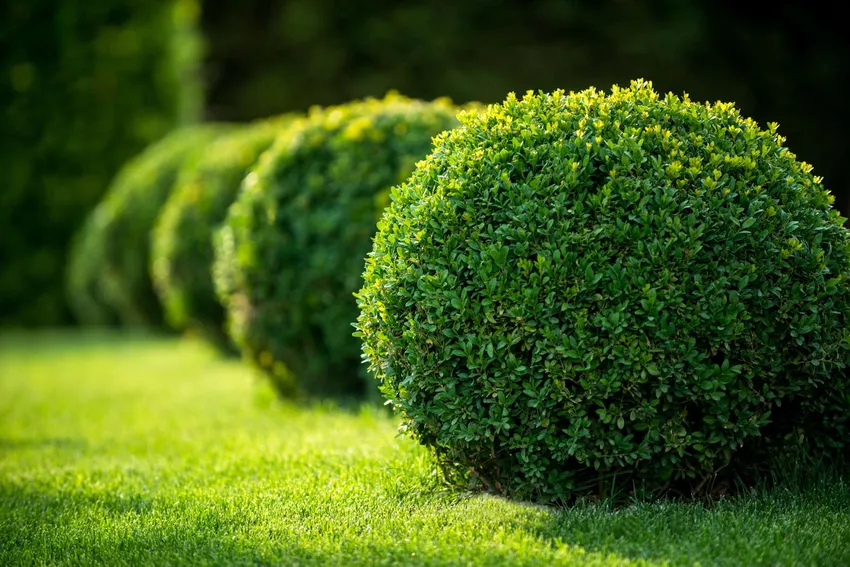The boxwood is very popular with us. But again and again the question arises whether the box is really poisonous and can be dangerous to humans. We clarify the following.

The shiny, dark green leaves of the box tree (Buxus) taste good to the box tree moth - to the chagrin of many garden lovers. But what about the digestibility for humans and pets? Read more about it in the following article.
Boxwood: Toxic for children and adults?
The boxwood has been documented as a cultivated plant since ancient times, and its longevity is the reason for its mystical importance as a plant of immortality. Its use as a medicinal plant with fever-reducing and pain-relieving effects also has a long tradition, but is highly problematic. Because the approximately 70 different alkaloids, above all buxin, which are found particularly in the roots and leaves of the plant, are highly toxic even in small doses when taken orally. It doesn't help that the plant has a high content of valuable essential oils and vitamin C.
Nevertheless, it is not immediately necessary to do without boxwood as a garden plant. Poisoning, especially in adults, is rare because all parts of the boxwood taste bitter and are therefore rarely eaten in life-threatening quantities. Also, the box does not bear attractive fruits or seed coats that could tempt to eat, as is the case with the poisonous yew (Taxus). If you have children and pets with you, it is still important to be aware of the dangers. Because the following applies: the lower the body weight, the easier it is to reach the dangerous dose when taken orally.

Symptoms of boxwood poisoning
Alkaloids act as neurotoxins by taking the place of the body's own neurotransmitters in the synapses, thereby disrupting the transmission of information. The symptoms of severe boxwood poisoning are first states of excitement, which then turn into symptoms of paralysis, cramps and tremors. include nausea with vomiting and diarrheaas typical side effects of poisoning. A drop in blood pressure can then occur very quickly, which in the worst case can lead to circulatory collapse and even death. There is no antidote, but the human body is capable of slowly breaking down the dangerous substances itself in small doses.
Countermeasures and First Aid
It's a good idea to teach children from the start that you have to ask before they taste a plant in your garden. Of course, very small children must be supervised at all times. If, despite all precautions, poisoning does occur, always call an ambulance or the poison control number first. There you will get the necessary advice, because every poisoning has to be treated differently.

If you are certain that the toxins in boxwood are the cause of the symptoms, have children spit out any parts of the plant that have not yet been swallowed. If the ingestion is recent, it may also be useful to induce vomiting to prevent the poison from being absorbed into the body. If the child already has cramps, this will hardly be possible. Saline solution as an emetic should be avoided, especially in children. However, if the child vomits, support them by supporting their forehead and helping to position themselves so that the vomit cannot enter the airway.
Under no circumstances should you try to make an unconscious person vomit! In this case, the person should be placed in a stable lateral position until rescue arrives.
Boxwood: Toxic to dogs and cats?
The alkaloids of the boxwood are also poisonous for pets. Dogs and cats can be affected, although eating the plant may not be particularly appealing to them. In particular, you have to watch out for small, herbivorous pets such as rodents or rabbits. Their outdoor enclosures and cages should be placed a safe distance from the box. The lethal dose for dogs is known: 0.1 grams of buxin per kg of body weight, which corresponds to around 5 to 10 grams of the drug (i.e. the respective plant parts), are considered lethal. There have also been reports of fatal poisoning in pigs using trimmed box shoots as bedding.

Despite the respectable toxicity of the boxwood, it is abeautiful addition to your garden and the danger of poisoning should neither be overestimated nor underestimated. You can find out more about the evergreen shrub in our special article.